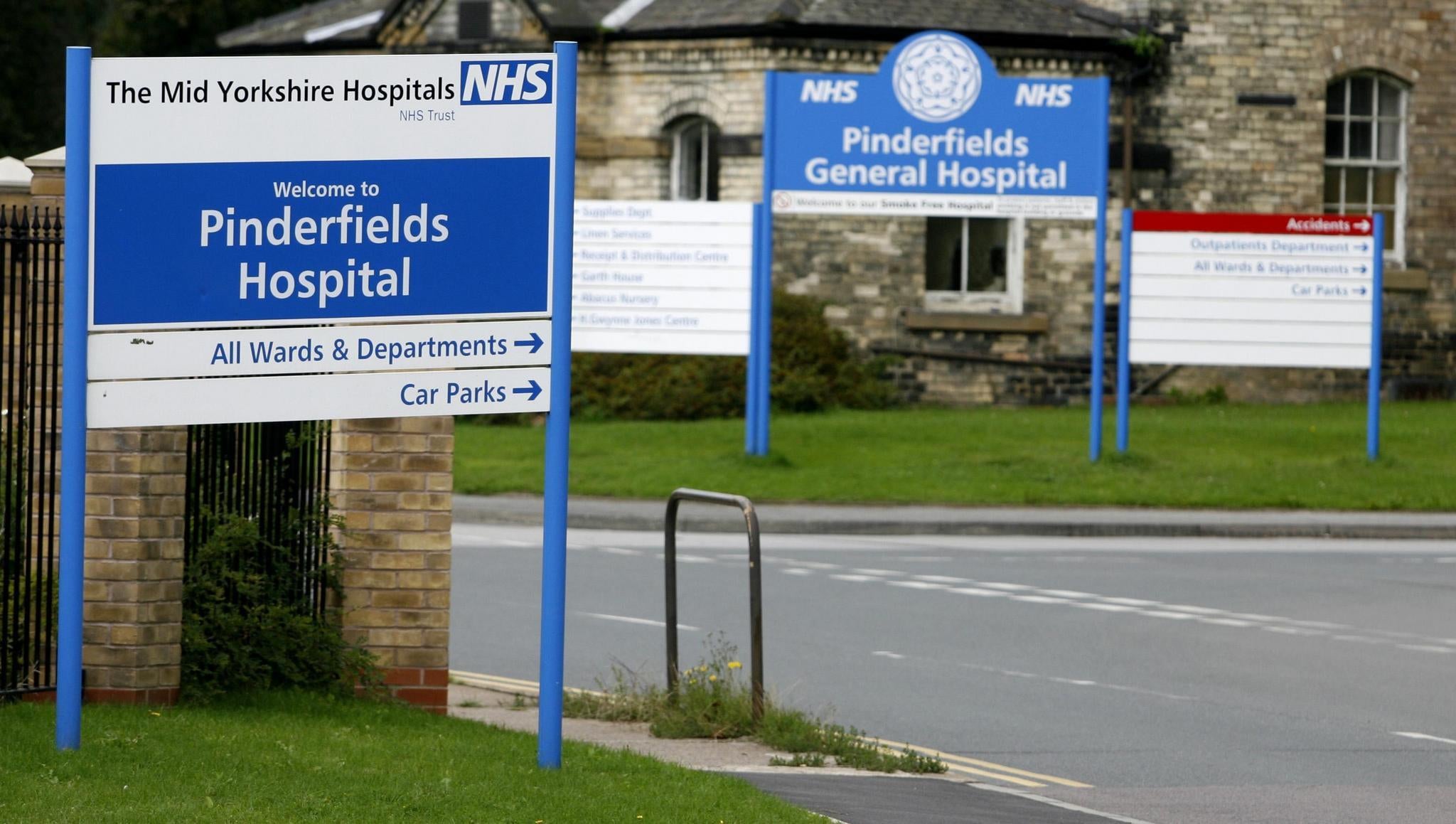NHS summer crisis: Hospital suspends all inpatient surgery for three weeks over bed shortages
Hospitals under pressure as the NHS calls in the military to shore up struggling ambulance services

All routine inpatient surgery at a hospital in Yorkshire is to be suspended from Monday to help the hospital trust cope with overcrowding in A&E caused by a lack of beds.
Bosses at the Mid Yorkshire Hospitals NHS Trust told staff in an email, shared with The Independent, that they had been forced to make the decision because of the lack of beds for waiting patients, which they said had been a “critical issue for too long.”
Martin Barkley, chief executive of the trust, told staff that he had been forced to act because of serious overcrowding in A&E, which was having an impact on patient care.
He told staff: “It is with regret that this decision has had to be made given that it will result in less patients receiving surgical treatment, slowing down our progress on reducing waiting times.
“However, the extreme pressure on beds has to be reduced and quickly. The trust consistently has between 25 and 50 patients waiting for a bed at any one time at Pinderfields emergency department, causing serious overcrowding and long delays [and] contributing to an unacceptable patient and staff experience.”
He said the situation was in spite of the trust having 69 extra beds already open and “virtually all wards” having extra beds, adding that the decision to cancel surgeries would be reviewed in three weeks’ time.
The trust joins a long list of hospitals across the country that have been forced to cancel planned surgeries in recent weeks because of a summer crisis in patient demand. Salford Royal Trust in Manchester told staff it was at “full capacity” this week, while on Wednesday the Queen Elizabeth Hospital in Birmingham cancelled any surgery requiring intensive care.
In London, St Mary’s Hospital in Paddington and Charing Cross Hospital in Hammersmith both declared “black alerts” because of a shortage of beds, and Sheffield Teaching Hospitals Trust has been forced to cancel routine joint surgery and open a second Covid ward.
NHS data released yesterday showed that 1 million 999 calls were made to ambulance services in July, the most ever recorded, while major A&Es saw the second-highest level of attendances in any month since 2010, the highest having been recorded in June.
The situation has got so bad for ambulance trusts that the NHS has made a request for military aid, with 87 military staff drafted in to help the trusts in the northeast and southwest as well as the East of England Ambulance Service. More soldiers are due to start helping the NHS next week, in a sign of how serious the pressures on the health service have become.
Dewsbury Hospital has around 350 beds, compared to 639 at Pinderfields Hospital. It is used mainly for planned surgery. The trust had more than 70 Covid-19 patients on wards on Thursday.
Mr Barkley told staff the decision to suspend surgery had been made by senior management, including the medical director and chief nurse.
The decision to suspend surgery for patients staying overnight in the hospital means wards will be converted to take sick medical patients, helping relieve pressure on Pinderfields Hospital.
In the email to staff, Mr Barkley said some wards would be converted to look after patients who were classed as medically fit for discharge, meaning beds could be freed up at the Pinderfields site.
NHS England said yesterday that while hospitals were making progress on recovering activity after the pandemic, the waiting list for routine surgery had grown again in June to 5.5 million patients, with still more than 304,000 waiting longer than a year and 5,000 waiting longer than two years.
The health secretary Sajid Javid has called for more investment in the NHS to help it tackle the backlog of operations and cope with rising patient demand. He has warned that numbers on waiting lists could reach 13 million.
Join our commenting forum
Join thought-provoking conversations, follow other Independent readers and see their replies
Comments
Bookmark popover
Removed from bookmarks